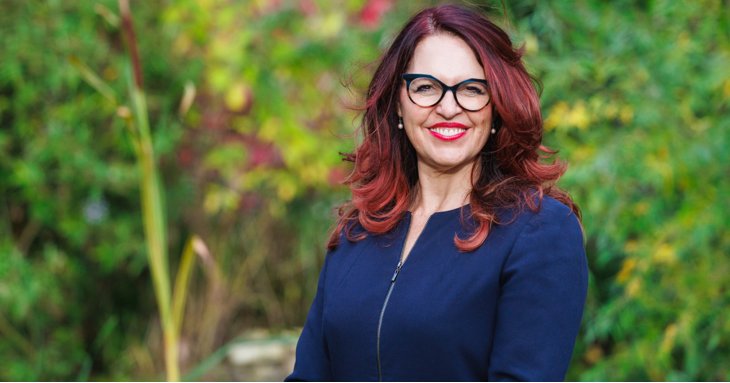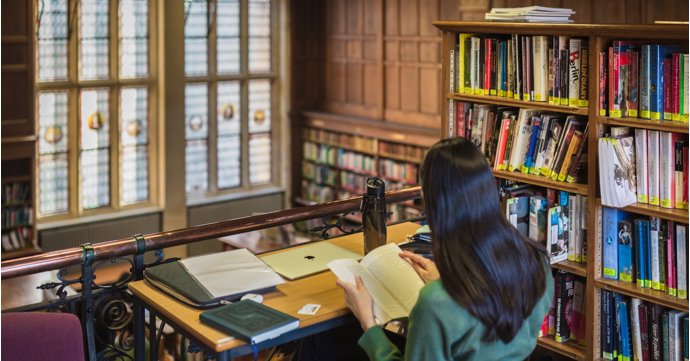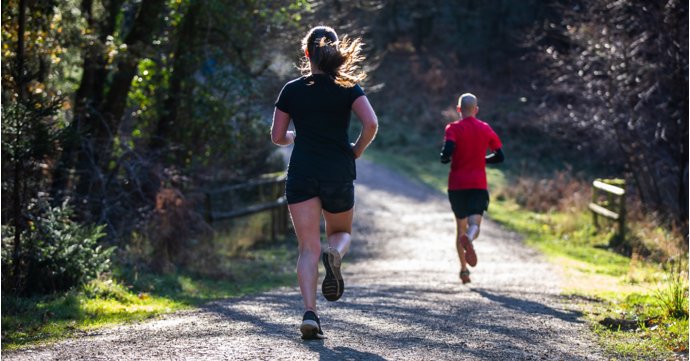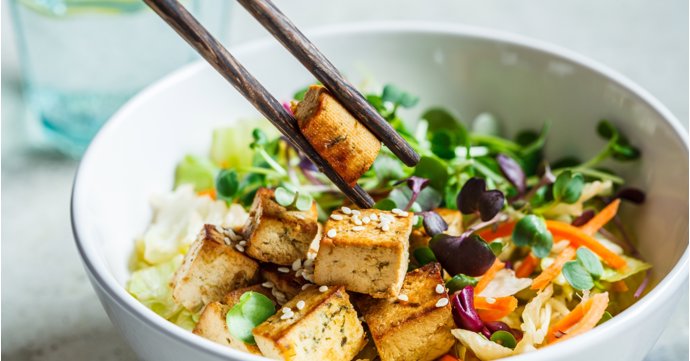For families considering an independent school for their daughter, Cheltenham Ladies' College is an obvious choice for Gloucestershire girls.
On top of being one of the county's most prestigious schools, the college prides itself on its nurturing environment - with SoGlos speaking to the Head of Lower College, Charlotte Woodhead, to discover all the ways the school helps girls starting their secondary education, from providing stimulating co-curricular opportunities to helping them make lifelong friends.
About the expert – Charlotte Woodhead from Cheltenham Ladies’ College
Charlotte Woodhead moved to Cheltenham and joined the team at Cheltenham Ladies' College almost seven years ago, taking the role of Head of Lower College. In addition to this, she is a member of the senior leadership team and helps to lead the wellbeing, personal development and enrichment programme at the school.
Before joining CLC, she was the head of two different prep schools for almost 15 years. Outside of work, she has been involved in the not-for-profit sector, leading youth projects and has been the governor of a local prep school. She is passionate about the transformative value of education and helping children develop character and resilience while striving for excellence.
Tell us a bit about the Lower College at Cheltenham Ladies’ College. Which year groups does it encompass?
As Head of Lower College, I keep a close eye on students in Years 7 to 9 within the context of the whole school. Supported by wonderful colleagues, I oversee the academic and pastoral wellbeing and development of these pupils aged 11 to 14 and do my best to ensure it is a happy and thriving part of CLC.
We’re dedicated to helping each girl fulfil her potential in an inspiring, happy and caring environment. We believe that pupils thrive when they experience a sense of accomplishment and are stretched within a supportive atmosphere. If we go by what the ancient Greeks defined as happiness, which is the joy that is experienced when we’re striving after our potential, then we are on the right track!
What does a typical day as Head of Lower College involve?
Each day is incredibly varied - there is much to manage, but it is captured through engagement with people. The most important focus is our students, but I also work closely with colleagues, parents, prospective parents and the wider community.
One of my favourite aspects of college life is what we call Prayers (assemblies). It’s an occasion that evokes a sense of history and continuity when the Lower College students file out from various tutor rooms, walking down the Marble Corridor to assemble in the beautiful Princess Hall - just as many generations of young women have done before them. I am often inspired by messages delivered by students, staff and guests and we value the time to be together – more so than ever given the recent the pandemic. We have exceptional choirs and our music students contribute beautiful performances, too. I frequently marvel at the fact that my job means I benefit from such a wonderful start to the day!

What is the Lower College community like?
The combination of boarding and day pupils brings such an exciting and interesting dynamic to CLC. It is brilliant that day students have the chance to develop many friendships and study alongside students who join us from across the UK and the world.
While we have day houses and boarding houses that dictate where students start or end their day, the day-to-day teaching in college, as well as the broad co-curricular programme, is a complete mix of students from across the school. We enjoy so many events and activities during the year that foster the development of lifelong friendships and connections.
How does Cheltenham Ladies’ College help girls manage the transition from primary to secondary education?
We know that our new pupils need to feel warmly welcomed into the college community and to experience a sense that they belong. This is a strong focus of the induction programme for new students, and we keep a close eye on how they are adjusting. Taking the leap from the primary to senior sector is a significant step and we are experienced and creative in helping this to become a happy move.
Providing opportunities to develop friendships is important in helping pupils to feel happy and settled, and this is a principal focus in Lower College. Since becoming Head of Lower College, I have been keen to create even more opportunities for our students to mix across year groups. These also form part of my personal commitment to ensure there is plenty of space created for students to have fun and experience joy – I encourage the girls to ‘work hard, play hard and be kind.’
What does the Lower College curriculum cover and how does this prepare girls for the exams they’ll be taking in Upper College?
The Lower College curriculum provides academic enrichment and builds the foundations for the GCSE years. We have a brilliant team of staff who convey passion for their area of expertise, which is really stimulating for students. Students are encouraged to develop a curiosity about the world and to question, reason and communicate articulately.
Years 7 and 8 follow a core curriculum of English; mathematics; biology; chemistry; physics; computer science; geography; history; religious studies; two languages (French, German, Spanish or Chinese, in addition to Latin); art and design; food and nutrition; PE; drama; and music.
There are also lessons they may not have elsewhere, such as philosophical enquiry and engineering, enterprise and technology (EET). Year 9 pupils broaden their linguistic experience and some subjects become optional.

What co-curricular and enrichment opportunities are available for Lower College students?
Our broad academic curriculum enables pupils to develop their subject knowledge and a range of transferable skills such as communication, critical thinking, independent learning, essay writing, problem solving, empathy and creativity. The development of these skills, as well as the facilities and resources at CLC, and passion and expertise of our staff, makes the curriculum alone more enriching.
There are also over 160 clubs and activities that contribute to a vibrant programme, from Jazz Band, Upcycling Club and Environmental Society, to football, Hip Hop Club and Medical and Ethical Society. While pupils may wish to, they can’t do everything, so they are encouraged to manage time wisely and balance their commitments – good practice for life in general!
In addition, we provide a fantastic wellbeing, personal development and enrichment programme, as well as a tremendous sport and physical activity programme, along with co-curricular activities, clubs, societies, talks, trips and additional weekend pursuits. These help pupils to feel inspired and to enjoy their time at college, whilst cultivating the skills and resilience to thrive in the wider world. They leave at the end of their time here having developed all sorts of fascinating skills and having had so many opportunities to be inspired by a wide-ranging and brilliantly enriching holistic education at CLC.
Are there any scholarships or bursaries available for prospective students hoping to study at Cheltenham Ladies’ College after primary school?
There certainly are! Over 70 pupils currently receive fees support; many receive 100 per cent support, whilst others receive a percentage award determined through a means-testing process. All receive pro-rated financial assistance towards additional costs, such as uniform and co-curricular activities. We have stepped up fundraising and awareness raising for bursaries over the last few years, which is very exciting!
CLC offers an enriching Scholarship Programme. Being a Scholar is a position of honour at CLC and an opportunity to play a key role in the life of the school. Scholarships do not carry fee remission, instead our tailored Scholarship Programme offers activities and experiences beyond the curriculum designed to enrich, inspire and challenge. These include bespoke lecture series and seminars and special trips and workshops. It really is an exceptional programme.





















